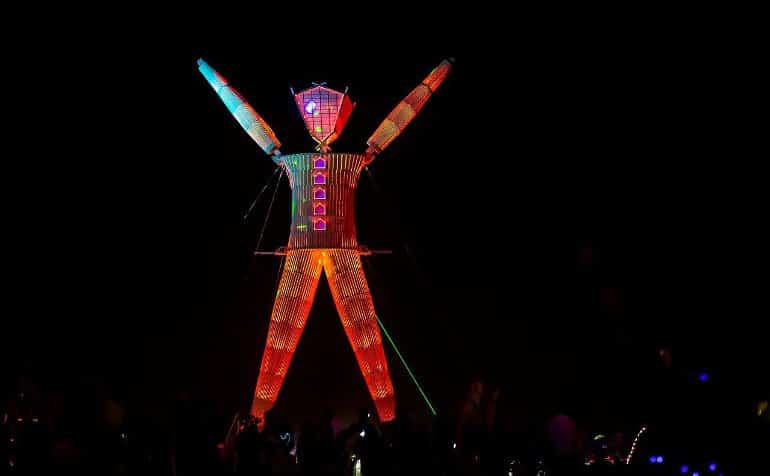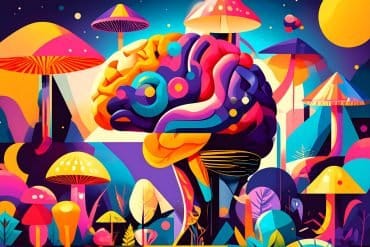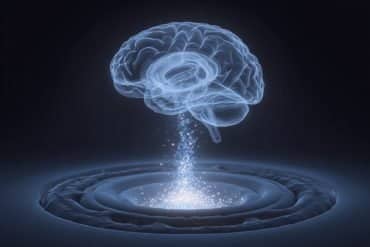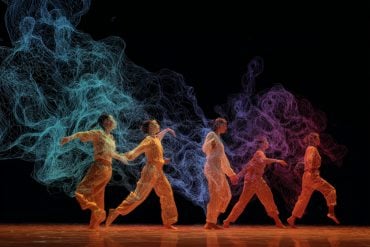Summary: Attendees of social gatherings like Burning Man who report the event was a transformative experience in their lives report feeling more connected with all of humanity and are more willing to help distant strangers.
Source: Yale
Throughout history, mass gatherings such as collective rituals, ceremonies, and pilgrimages have created intense social bonds and feelings of unity in human societies.
But Yale psychologists wondered if modern-day secular gatherings that emphasize creativity and community serve an even broader purpose.
The research team studied people’s subjective experiences and social behavior at secular mass gatherings, such as the annual Burning Man festival in the Nevada desert.
They found that people who reported transformative experiences at the gatherings felt more connected with all of humanity and were more willing to help distant strangers, the researchers report May 27 in the journal Nature Communications.
“We’ve long known that festivals, pilgrimages, and ceremonies make people feel more bonded with their own group,” said Daniel Yudkin, a postdoctoral researcher and first author of the paper. “Here we show that experiences at secular mass gatherings also have the potential to expand the boundaries of moral concern beyond one’s own group.”
The research team, led by M.J. Crockett, an associate professor of psychology at Yale, conducted field studies of more than 1,200 people attending multi-day mass gatherings in the United States and United Kingdom: Burning Man, Burning Nest, Lightning in a Bottle, Dirty Bird, and Latitude, all events that feature art, music, and self-expression.
The researchers set up booths at the events inviting passersby to “Play Games for Science.” Those who agreed to participate were asked about their experiences at the events along with their willingness to share resources with friends and strangers.
Overall, 63.2% of participants reported having transformative experiences so profound that they left the events feeling radically changed, including a substantial number of people who did not expect or desire to be transformed. (And yes, transformative experiences were more intense among the 28% of subjects who reported taking psychedelic substances.)

People who reported transformative experiences also reported feeling more socially connected with all human beings, and with every passing day they spent at these events, participants expanded their circle of generosity beyond family and friends towards including distant strangers.
They recontacted some of the original attendees and also 2,000 people who had attended the event but were not originally interviewed. The researchers found that transformative experiences and their prosocial feelings persisted at least six months.
“The findings are an important reminder of what we’ve missed in years of pandemic isolation,” Yudkin said. “Powerful social experiences, or what the sociologist Emile Durkheim called ‘collective effervescence.’”
Crockett concluded, “Transformative experiences help people transcend the borders of the self and connect with all of humanity — crucial qualities to cultivate as we work to end this pandemic and prevent future ones.”
Funding: The research was conducted as part of The Experience Project funded by the John Templeton Foundation.
Researchers from the University of Pennsylvania, University of California, Los Angeles, University of Denver and University of Bath in the United Kingdom contributed to the study.
About this psychology research news
Author: Bess Connolly
Source: Yale
Contact: Bess Connolly – Yale
Image: The image is in the public domain
Original Research: Open access.
“Prosocial correlates of transformative experiences at secular multi-day mass gatherings” by M.J. Crockett et al. Nature Communications
Abstract
Prosocial correlates of transformative experiences at secular multi-day mass gatherings
Humans have long sought experiences that transcend or change their sense of self. By weakening boundaries between the self and others, such transformative experiences may lead to enduring changes in moral orientation.
Here we investigated the psychological nature and prosocial correlates of transformative experiences by studying participants before (n = 600), during (n = 1217), 0–4 weeks after (n = 1866), and 6 months after (n = 710) they attended a variety of secular, multi-day mass gatherings in the US and UK.
Observations at 6 field studies and 22 online followup studies spanning 5 years showed that self-reported transformative experiences at mass gatherings were common, increased over time, and were characterized by feelings of universal connectedness and new perceptions of others.
Participants’ circle of moral regard expanded with every passing day onsite—an effect partially mediated by transformative experience and feelings of universal connectedness. Generosity was remarkably high across sites but did not change over time.
Immediately and 6 months following event attendance, self-reported transformative experience persisted and predicted both generosity (directly) and moral expansion (indirectly).
These findings highlight the prosocial qualities of transformative experiences at secular mass gatherings and suggest such experiences may be associated with lasting changes in moral orientation.







